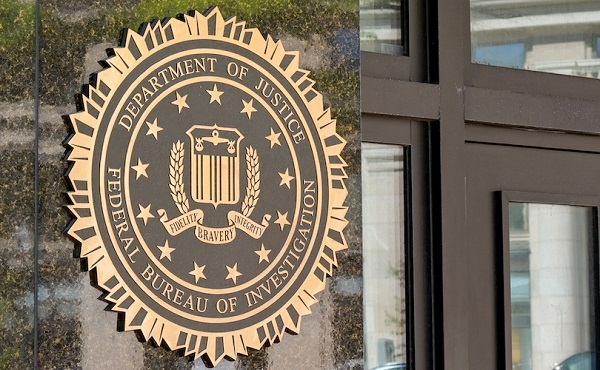Censorship Industrial Complex
New Democrat MP introduces bill that would criminalize ‘denial’ of unproven residential school narrative

Kamloops Residential School
From LifeSiteNews
Calling the system a ‘genocide’ without evidence, Bill C-413 would charge those who ‘promote hatred against Indigenous peoples by condoning, denying, downplaying or justifying the Indian residential school system in Canada.’
A backbencher MP from the socialist New Democratic Party (NDP) has brought forth a new bill that seeks to criminalize the denial of the unproven claim that the residential school system once operating in Canada was a “genocide.”
The new bill, introduced by NDP MP Leah Gazan, if passed, could lead to potential jail time for those who even question the official government narrative regarding the once-mandated residential schools.
Bill C-413, as written, would charge those who “promote hatred against Indigenous peoples by condoning, denying, downplaying or justifying the Indian residential school system in Canada through statements communicated other than in private conversation.”
The NDP claims, without evidence, that the “residential school system was a genocide” and that it was “designed to wipe out Indigenous cultures, languages, families and heritage. To downplay, deny or justify it is cruel, harmful and hateful. This should have no place in Canada.”
Those found guilty under the proposed law could face fines of $5,000 or two years in jail.
News of the bill was immediately blasted by those who point out that to criminalize the “denial” of a still unproven and dubious assertion is beyond the pale.
“Radical leftist NDP MP just tabled a bill that would criminalize so-called residential school denialism. If passed it would be illegal in Canada to say that the residential school system was NOT a genocide… which it was not. This is totally insane,” wrote True North political commentator and journalist Harrison Faulkner.
Radical leftist NDP MP just tabled a bill that would criminalize so-called residential school denialism.
If passed it would be illegal in Canada to say that the residential school system was NOT a genocide…which it was not.
This is totally insane.pic.twitter.com/twlin1Qyx6
— Harrison Faulkner (@Harry__Faulkner) September 26, 2024
LifeSiteNews recently reported how one of Faulkner’s podcast episodes, which talked about residential schools, was censored by Spotify because it was “dangerous content.”
Corey Morgan of the Western Standard, who has written extensively about how the government’s official narrative of “genocide” is not backed by a single body or any hard evidence, “dared” the government to come after him should this law be passed.
“Body count at the Kamloops Residential School remains at zero. Charge me. I dare you,” wrote Morgan.
Body count at the Kamloops Residential School remains at zero.
Charge me.
I dare you https://t.co/jUTwjPKKfF
— Cory Morgan (@CoryBMorgan) September 26, 2024
As reported by LifeSiteNews in August, the federal cabinet of Prime Minister Justin Trudeau said it will expand a multimillion-dollar fund that is geared toward documenting thus far unfounded claims that hundreds of young children died and were clandestinely buried at now-closed residential schools, some of them run by the Catholic Church.
Canada’s Department of Crown-Indigenous Relations even confirmed it spent millions searching for “unmarked graves” at a now-closed residential school once run by the Catholic Church, turning up no human remains.
In 2021 and 2022, the mainstream media and federal government ran with inflammatory and dubious claims that hundreds of children were buried and disregarded by Catholic priests and nuns who ran some of the schools.
The Tk’emlups te Secwepemc First Nation was more or less the reason there was a large international outcry in 2021 when it claimed it had found 215 “unmarked graves” of kids at the Kamloops Residential School. The claims of remains, however, were not backed by physical evidence but were rather disturbances in the soil picked up by ground-penetrating radar.
The First Nation now has changed its claim of 215 graves to 200 “potential burials.”
Canadian indigenous residential schools, while run by both the Catholic Church and other Christian churches, were mandated and set up by the federal government and ran from the late 19th century until the last school closed in 1996.
While there were indeed some Catholics who committed serious abuses against native children, the unproved “mass graves” narrative has led to widespread anti-Catholic sentiment since 2021.
Since the spring of 2021, more than 100 churches, most of them Catholic, have been burned or vandalized across Canada.
Censorship Industrial Complex
FBI urged to release withheld records on Hunter Biden laptop, other ‘Twitter Files’

From LifeSiteNews
By Dan Frieth
Judicial Watch initiated the lawsuit in April 2023, targeting the DOJ, the Department of Homeland Security, and the Office of the Director of National Intelligence
A hearing took place Wednesday, before U.S. District Judge Sparkle L. Sooknanan, in a Freedom of Information Act (FOIA) lawsuit brought by Judicial Watch against the Department of Justice (DOJ).
The case seeks records related to the “Twitter Files,” particularly those involving Hunter Biden’s laptop and allegations of censorship.
The only matter still pending is the FBI’s withholding of records detailing two meetings between agency officials and Twitter representatives from the Biden administration.
Judicial Watch initiated the lawsuit in April 2023, targeting the DOJ, the Department of Homeland Security, and the Office of the Director of National Intelligence.
The legal action followed the FBI’s failure to respond to a December 2022 FOIA request for communications between FBI personnel and key Twitter figures, including Yoel Roth, Vijaya Gadde, and Jim Baker, from June 2020 to December 2022.
These individuals were involved in discussions about suppressing the New York Post’s Hunter Biden laptop story, as disclosed in journalist Matt Taibbi’s December 2022 “Twitter Files.”
Tom Fitton, president of Judicial Watch, expressed strong disappointment: “It is frustrating beyond belief for Judicial Watch to have to go to federal court for basic information on Biden’s abuse of the FBI, using Twitter to censor and monitor Americans.”
Through a mix of FOIA requests and legal action, Judicial Watch continues to document extensive censorship efforts that affected tens of millions of Americans.
In November 2024, it obtained DHS records showing a widespread campaign, by both government and private groups, to police and suppress social media posts concerning election fraud in 2020.
Additional records from June 2024, released through Judicial Watch litigation, revealed that just before and after the 2020 election, state officials flagged alleged misinformation and sent it to entities like the Center for Internet Security, CISA, and the Election Integrity Partnership (EIP), a DHS-backed nonprofit known for targeting online election discourse.
In December 2023, DHS documents exposed coordination between CISA and the EIP to conduct “real-time narrative tracking” on major social media platforms in the run-up to the 2020 vote.
Similar records surfaced in November 2023, showing EIP’s influence over platforms such as Google, Twitter, Facebook, TikTok, Pinterest, and Reddit to suppress “disinformation.”
Reprinted with permission from Reclaim The Net.
Censorship Industrial Complex
Jordan Peterson reveals DEI ‘expert’ serving as his ‘re-education coach’ for opposing LGBT agenda

From LifeSiteNews
The Ontario College of Psychologists has selected Jordan Peterson’s “re-education coach” for having publicly opposed the LGBT agenda.
In a June 16 op-ed published by the National Post, Canadian psychologist Dr. Jordan Peterson revealed that U.K. citizen Harry Cayton will guide him through the mandatory training.
“In the last week … the College has re-established contact, after months of unnecessary delay, which occurred in violation of their own order and guidelines. They have made me an entirely new offer, all the while insisting that this was their intent all along, which it most clearly was not,” Peterson said.
“All they really want, it turns out, is one two-hour session, which will not involve any ‘social media’ training,” he further explained. “This will be conducted by a man — one Harry Cayton — a citizen of the U.K., who is neither social media expert, according to the College and is definitely not a psychologist.”
Harry Cayton, a supposed expert on “professional regulation and governance,” is known professionally for promoting Diversity, Equity, and Inclusion (DEI) initiatives.
In 2021, he was appointed to conduct an independent review of the British Columbia Law Society’s governance structure, specifically examining how it supports DEI goals.
Additionally, in 2022, while appearing on Ascend Radio’s podcast, Cayton argued there should be more DEI regulations in professional associations.
Peterson has promised to make the details of his “re-education” public, questioning why the College wishes to hide what Cayton plans to discuss with him.
“If I am the intransigent fool, and he is the wizard to set things right, why not bless everyone interested with his wisdom, and allow them to participate in the restructuring of my psyche and eventual enlightening? Why the concern with confidentiality?” he asked.
Peterson also explained that he will publicize the training “so that people who are interested can decide for themselves what is going on.”
In January 2024, Peterson lost his appeal of the board’s decision to compel him to undergo mandatory re-education, meaning that he must attend the training or risk losing his license to practice psychology in Ontario.
Peterson also revealed that his “legal options have” now “been exhausted” after Ontario’s highest court rejected his appeal of the College’s 2022 ruling that his public political statements ran afoul of the administrative board’s rules and that he must therefore submit to, and personally pay for, a “coaching program” on professionalism.
Peterson is a widely-known critic of Canada’s increasingly totalitarian government. He has also spoken frequently on the need for young men to accept and take on personal responsibility. While he has seemingly inspired others to explore Christianity, he has not yet espoused a personal belief in any religion, though he affirmed his wife Tammy in her decision to convert to Catholicism in 2024.
-

 COVID-198 hours ago
COVID-198 hours agoOntario man launches new challenge against province’s latest attempt to ban free expression on roadside billboards
-

 Energy16 hours ago
Energy16 hours agoThis Canada Day, Celebrate Energy Renewal
-

 Business1 day ago
Business1 day agoWhile China Hacks Canada, B.C. Sends Them a Billion-Dollar Ship Building Contract
-

 Alberta1 day ago
Alberta1 day agoSo Alberta, what’s next?
-

 Alberta7 hours ago
Alberta7 hours agoAlberta Next Takes A Look At Alberta Provincial Police Force
-

 Bjorn Lomborg1 day ago
Bjorn Lomborg1 day agoThe Physics Behind The Spanish Blackout
-

 Alberta9 hours ago
Alberta9 hours agoCanadian Oil Sands Production Expected to Reach All-time Highs this Year Despite Lower Oil Prices
-

 International10 hours ago
International10 hours agoPresident Xi Skips Key Summit, Adding Fuel to Ebbing Power Theories





